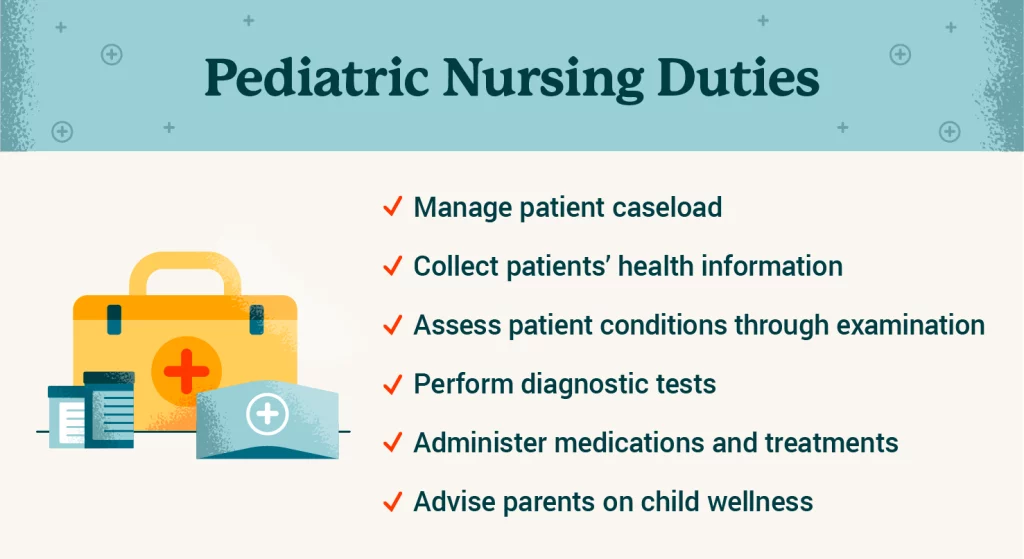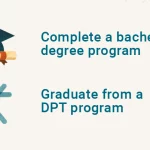As you step into the world of nursing, imagine yourself surrounded by a bustling hospital ward, the scent of antiseptic in the air, and the steady hum of medical equipment.
But before you can embark on this rewarding career, you need to understand the education requirements that will pave the way for your success. From various nursing degrees to licensing and certification requirements, there is much to explore.
So, whether you are just beginning your journey or seeking to advance your career, let’s uncover the essential knowledge and skills that await you in the world of nursing.
Types of Nursing Degrees
There are several types of nursing degrees that you can pursue to begin your career in the field of nursing.
One option is the Licensed Practical Nurse (LPN) program, which typically takes about one year to complete. As an LPN, you’ll provide basic patient care under the supervision of registered nurses or doctors.
Another option is the Associate Degree in Nursing (ADN), which usually takes two to three years to finish. With an ADN, you can become a registered nurse and work in various healthcare settings.
If you’re looking for more advanced opportunities, you may consider pursuing a Bachelor of Science in Nursing (BSN). This degree takes around four years to complete and offers a broader understanding of nursing concepts and skills. With a BSN, you can access a wider range of nursing positions and potentially earn a higher salary.
Finally, there’s the Master of Science in Nursing (MSN), which typically takes two years to complete. This degree allows you to specialize in a specific area of nursing, such as nurse practitioner or nurse educator.
Bachelor’s Degree in Nursing (BSN)
If you’re considering pursuing a Bachelor’s Degree in Nursing (BSN), there are several important points to keep in mind.
First, you’ll need to meet the program requirements, which typically include prerequisites like biology and chemistry courses.
Second, the BSN curriculum provides a comprehensive overview of nursing theory and practice, including courses in anatomy, pharmacology, and patient care.
BSN Program Requirements
To earn a Bachelor’s Degree in Nursing (BSN), you must meet specific program requirements. These requirements may vary depending on the institution you choose to attend. Generally, BSN programs require completion of prerequisite courses such as biology, chemistry, anatomy, and physiology.
In addition, you’ll need to complete a certain number of general education courses, including English, math, and social sciences. BSN programs also typically require clinical experiences, where you’ll have the opportunity to apply your knowledge and skills in a real healthcare setting.
Some programs may also require you to complete a capstone project or a research paper. It’s important to carefully review the program requirements of the BSN program you’re interested in to ensure you meet all the necessary criteria for admission.
BSN Curriculum Overview
The BSN curriculum provides a comprehensive education in nursing, preparing you for a career in healthcare. This program covers a wide range of subjects, including anatomy, physiology, pharmacology, and patient care. You’ll also learn about nursing ethics, leadership, and evidence-based practice.
The curriculum is designed to give you a strong foundation in the sciences as well as the practical skills needed to provide quality patient care. Throughout your studies, you’ll have the opportunity to gain hands-on experience through clinical rotations in various healthcare settings. These experiences will allow you to apply your knowledge and develop critical thinking and problem-solving skills.
Benefits of BSN Degree
What are the benefits of earning a BSN degree in nursing?
A BSN degree offers numerous advantages that can enhance your nursing career. First and foremost, having a BSN degree increases your job prospects. Many healthcare facilities prefer to hire nurses with a bachelor’s degree, as it demonstrates a higher level of education and expertise.
Additionally, a BSN degree equips you with a more comprehensive understanding of healthcare, allowing you to provide better patient care. You’ll gain knowledge in areas such as leadership, research, and evidence-based practice, which are essential for advancing in your nursing career.
Furthermore, nurses with a BSN degree often earn higher salaries compared to those with an associate degree. The increased earning potential and career advancement opportunities make obtaining a BSN degree a wise investment in your future.
Associate Degree in Nursing (ADN)
Obtaining an Associate Degree in Nursing (ADN) equips you with the necessary skills and knowledge to begin a rewarding career in the healthcare field. An ADN program typically takes around two to three years to complete and provides a solid foundation in nursing principles and practices. During your studies, you’ll gain a comprehensive understanding of anatomy, physiology, pharmacology, and patient care techniques. ADN programs also include clinical experiences, where you’ll have the opportunity to apply what you have learned in real-world healthcare settings, under the guidance of experienced nurses.
One of the main advantages of pursuing an ADN is the relatively shorter duration of the program compared to a Bachelor of Science in Nursing (BSN) degree. This allows you to enter the workforce sooner and start making a difference in people’s lives. Additionally, an ADN can serve as a stepping stone towards further education and career advancement. Many nurses with ADNs choose to pursue a BSN or even a Master of Science in Nursing (MSN) degree later in their careers.
It is important to note that while an ADN provides a solid foundation for nursing practice, some healthcare institutions may prefer or require nurses to hold a BSN degree. However, with an ADN, you’ll still have numerous job opportunities available to you in hospitals, clinics, long-term care facilities, and other healthcare settings. Your skills and knowledge will enable you to provide quality care to patients and make a meaningful impact in their lives.
Diploma in Nursing
If you’re looking to further your nursing education after completing an Associate Degree in Nursing (ADN), another option to consider is a Diploma in Nursing. A Diploma in Nursing is a program that provides a more focused and intensive education in nursing than an ADN program. Typically offered by hospitals or healthcare facilities, a Diploma in Nursing can be completed in about two to three years.
One of the main advantages of a Diploma in Nursing is that it offers hands-on clinical experience right from the start. This allows you to develop practical skills and gain real-world experience in a healthcare setting. The curriculum of a Diploma in Nursing program usually includes courses in anatomy, physiology, pharmacology, and nursing theory, along with clinical rotations in various healthcare settings.
A Diploma in Nursing can also provide a pathway to further education and career advancement. Many universities offer bridge programs that allow graduates of a Diploma in Nursing to earn a Bachelor of Science in Nursing (BSN) degree. Having a BSN degree can open up more opportunities for specialization and leadership roles in nursing.
Licensing and Certification Requirements
Now let’s talk about the licensing and certification requirements for nursing.
To become a licensed nurse, you’ll need to meet the specific requirements set by your state, which may include completing an approved nursing program and passing the National Council Licensure Examination (NCLEX).
Additionally, obtaining national certifications in specialized areas can enhance your career prospects.
It’s important to note that continuing education credits are often required to maintain your license and certifications, ensuring that you stay up-to-date with the latest advancements in the field.
State Licensing Requirements
To meet the licensing and certification requirements for nursing, you must complete the necessary educational and examination components mandated by your state.
State licensing requirements vary, but typically include completing an approved nursing program and passing the National Council Licensure Examination for Registered Nurses (NCLEX-RN).
Additionally, some states may require additional exams, such as the state-specific nursing exam. It’s important to check with your state’s nursing board to understand the specific requirements.
In addition to the educational and examination requirements, you may also need to provide proof of CPR certification, submit fingerprints for a background check, and fulfill any additional state-specific requirements.
Once you meet all the necessary requirements, you’ll be eligible to apply for licensure in your state and begin your career as a licensed nurse.
National Certification Exams
After completing the necessary educational and examination requirements for state licensing, the next step is to prepare for the national certification exams. These exams are designed to assess your knowledge and skills in specific areas of nursing practice, ensuring that you meet the standards set by national nursing organizations.
The two main national certification exams for registered nurses are the National Council Licensure Examination for Registered Nurses (NCLEX-RN) and the American Nurses Credentialing Center (ANCC) Certification Exam. The NCLEX-RN is a comprehensive exam that covers a wide range of nursing topics, while the ANCC Certification Exam focuses on a specific nursing specialty, such as pediatric nursing or geriatric nursing.
To prepare for these exams, you can utilize study guides, practice exams, and review courses to enhance your understanding and test-taking abilities. It’s important to devote sufficient time and effort to studying for these exams in order to increase your chances of success and obtain your national certification.
Continuing Education Credits
To maintain your nursing license and national certification, you must fulfill continuing education credit requirements.
Continuing education credits are an essential component of your professional development as a nurse. These credits are designed to ensure that you stay updated with the latest advancements in the field and maintain your competence in providing quality patient care.
The specific number of continuing education credits required may vary depending on your state’s regulations and the requirements of your national certification board.
These credits can be earned through various educational activities, such as attending workshops, conferences, or online courses, as well as completing self-study modules or participating in professional organizations.
It’s crucial to keep track of your continuing education credits and submit the necessary documentation to maintain your nursing license and national certification.
Skills and Knowledge Needed for Nursing
In order to succeed in nursing, you must possess a diverse range of skills and knowledge. Nursing requires not only technical skills but also strong interpersonal and communication abilities. As a nurse, you need to be skilled in performing various medical procedures such as administering medications, starting intravenous lines, and conducting physical assessments. You must have a solid understanding of anatomy, physiology, and pharmacology, as well as the ability to interpret laboratory results and medical charts. Additionally, you must be knowledgeable about different disease processes and treatment options.
In addition to technical skills, nursing also requires strong critical thinking and problem-solving abilities. As a nurse, you’ll often encounter complex situations that require quick decision-making and the ability to prioritize care. You must be able to assess a patient’s condition, analyze data, and make sound judgments to provide the best possible care.
Furthermore, effective communication is crucial in nursing. You must be able to communicate clearly and compassionately with patients, their families, and other members of the healthcare team. Good communication skills help build trust and establish rapport, which are essential for providing holistic care.
Lastly, nursing requires resilience, adaptability, and the ability to work well under pressure. In this fast-paced and demanding profession, you must be able to remain calm and focused in high-stress situations. Flexibility and the ability to multitask are also important as patient needs can change rapidly.
Advancing Your Nursing Career
Take charge of your nursing career by pursuing opportunities for advancement and professional growth. As a nurse, there are various ways to further your career and enhance your skills.
One option is to pursue advanced education, such as a Master’s or Doctoral degree in Nursing. These advanced degrees can open doors to higher-level positions, such as nurse practitioner or nurse educator.
Additionally, obtaining specialty certifications can demonstrate your expertise in a particular area of nursing and increase your marketability.
Another way to advance your career is to seek out leadership roles within your organization or professional nursing associations. Becoming a charge nurse, nurse manager, or serving on committees can provide valuable experience and allow you to make a greater impact within the nursing profession.
Networking is also crucial for career advancement. Attend conferences, join professional organizations, and connect with other nurses in your field. These connections can lead to mentorship opportunities, job referrals, and collaborative projects.
Lastly, staying current with advancements in healthcare technology and research is vital for professional growth. Continuously seeking out opportunities for learning and development will ensure that you remain at the forefront of nursing practice.
Frequently Asked Questions
How Long Does It Take to Complete a Bachelor’s Degree in Nursing (Bsn)?
It usually takes about four years to complete a Bachelor’s degree in Nursing (BSN).
Can I Become a Nurse With Just a Diploma in Nursing?
Yes, you can become a nurse with just a diploma in nursing. However, keep in mind that having a bachelor’s degree in nursing (BSN) may provide more opportunities for career advancement.
What Is the Difference Between an Associate Degree in Nursing (Adn) and a Bachelor’s Degree in Nursing (Bsn)?
The difference between an ADN and a BSN is that an ADN is a two-year program, while a BSN is a four-year program. ADNs focus more on clinical skills, while BSNs offer a broader education.
Are There Any Specific Skills or Knowledge That Are Required to Become a Nurse?
To become a nurse, you need specific skills and knowledge. These include strong communication, critical thinking, and problem-solving abilities. You must also have a solid understanding of medical terminology and procedures, as well as a compassionate and caring nature.
What Are the Options for Advancing a Nursing Career After Obtaining a Nursing Degree?
After obtaining a nursing degree, you have various options to advance your nursing career. These include pursuing advanced degrees, such as a Master’s or Doctorate in Nursing, or specializing in a specific area of nursing through certifications or additional training.
Conclusion
So, if you’re looking to pursue a career in nursing, there are several educational paths you can take. Whether you choose to earn a Bachelor’s Degree in Nursing (BSN), an Associate Degree in Nursing (ADN), or a Diploma in Nursing, it’s important to meet the licensing and certification requirements in your state.
Additionally, developing the necessary skills and knowledge in nursing will help you advance in your career. So, get ready to embark on a fulfilling journey in the field of nursing!


